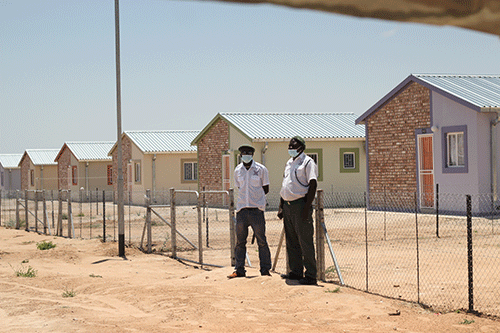Any tax reforms proposed earlier this year need to go through the relevant legislative process. This was once again reiterated by finance and public enterprises minister, Iipumbu Shiimi, who suggested that ideally by October this year is when individuals buying property will be able to do so without having to pay transfer duties.
Earlier this year while tabling the national budget, he announced that brackets for transfer duties and stamp duties will be adjusted for inflation. Accordingly, the exempt level would be lifted from N$600 000 to N$1.1 million, as a measure to support improving access to housing.
“The policy decision has been taken, but these amendments are laws, and have to go to Parliament. We have done the drafting part and now legal drafters are busy with it to fit the legal language. I’m hoping this law will be approved by Parliament by October and people will not be paying the transfer duties if the price is below the set amount,” Shiimi added.
The minister was speaking during an update on the ministry’s developments at the Government Information Centre this week.
During the budget statement at the beginning of March, he said the threshold to trigger the transfer duty rate of 8% will be increased to N$3.15 million effective in FY2024/25. In addition, a supertax transfer duty and stamp duty bracket for luxury residential properties will be introduced for residential properties costing above N$12 million.
In Namibia, access to housing remains critical, particularly in urban areas. The country is struggling to provide adequate housing, mainly due to a lack of serviced land. The scarcity of new homes in cities has resulted in rising property prices, particularly in urban areas.
According to the latest FNB House Price Index report by the bank’s economist Ruusa Nandago, the overall national house price stood at N$1 214 674 during the fourth quarter of 2023.
She noted that transaction volumes remain contractionary for the sixth consecutive quarter, at a 12-month average growth of -19.1% at the end of Q4, 2023.
“The residential property sector continues to bear the brunt of the elevated price and interest rate environment, as observed in weak buying activity across all regions. We maintain our view that the residential property market will remain constrained as affordability bottlenecks persist. Supply side issues remain a binding constraint on buying activity in the market,” the FNB economist stated.
Nandago advised that an increase in the supply of serviced land and consequently housing stock is crucial for the growth of the residential property market.
Moreover, the FY2024/25 budget allocated a total of N$700 million for informal settlements upgrading, massive land servicing, and other programmes to improve national access to housing opportunities.



